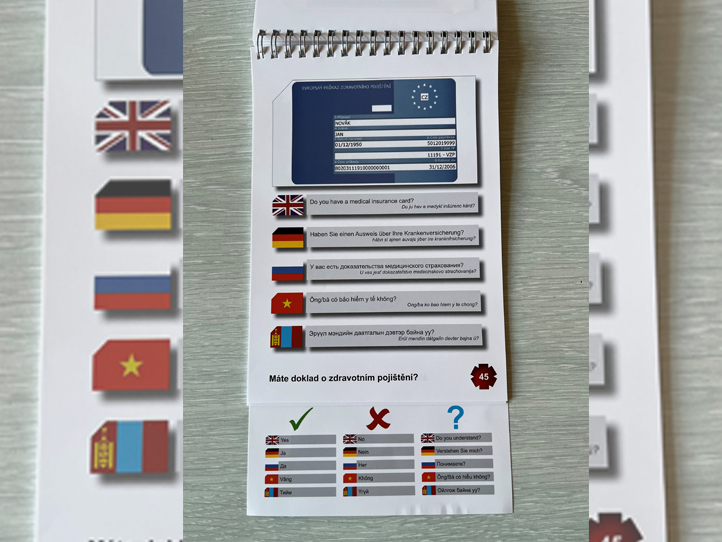Thessaloniki gets ready for its metro launch in November
The underground rapid transit lines have been under construction for almost two decades due to various project delays
 TheMayor.EU logo
TheMayor.EU logo They contain information in 5 languages (English, German, Russian, Vietnamese, Mongolian)
On 25 April, the Czech City of Pilsen announced that it has purchased and provided anamnestic health and language communication cards to the Medical Rescue Service of the Pilsen Region (ZZS PK). With these cards, paramedics will be able to treat people who do not speak Czech and those who are not able to talk as a result of their medical conditions.
The municipality first invested in this communication tool in 2011 when it provided paramedics with these cards with the goal of promoting the integration of foreigners. Now, ZZS PK has asked for more cards to be printed as the war in Ukraine has resulted in a large influx of refugees. As such, all the vehicles of the Medical Rescue Service will now be equipped with these communication cards.
“Medical and language communication cards are translated into five language versions – English, German, Russian, Vietnamese, and Mongolian. Currently, the City of Pilsen has provided 80 sets of cards for the Medical Rescue Service of the Pilsen Region at its own expense,” explained Deputy Mayor Eliška Bartáková.
 An example of a question in the communication card (Source: City of Pilsen)
An example of a question in the communication card (Source: City of Pilsen)
The cards contain basic questions (in the aforementioned 5 languages) that allow paramedics to find out all the information that is necessary for a pre-hospital emergency. Some of these questions include, “Do you have a medical insurance card?”, “Do you remember what happened?”, and “Are you in pain?”.
"It is difficult to find a single communication tool for similar situations because the language skills and abilities of health professionals and patients are very different and in stressful situations, it is sometimes very difficult to find the right terms in the native language. These cards can serve as a crutch in communication," shared the head of PK ZZS, Jana Vidunová.

The underground rapid transit lines have been under construction for almost two decades due to various project delays

Now you can get your wine in Talence by paying directly in Bitcoin

That’s because the state has to spend money on updating the railway infrastructure rather than subsidizing the cost of the popular pass

Rethinking renewable energy sources for the urban landscape

The examples, compiled by Beyond Fossil Fuels, can inform and inspire communities and entrepreneurs that still feel trepidation at the prospect of energy transition

Now you can get your wine in Talence by paying directly in Bitcoin

The 10th European Conference on Sustainable Cities and Towns (ESCT) sets the stage for stronger cooperation between the EU, national and local level to fast track Europe's transition to climate neutrality.

At least, that’s the promise made by the mayor of Paris, Anne Hidalgo

The underground rapid transit lines have been under construction for almost two decades due to various project delays

At least, that’s the promise made by the mayor of Paris, Anne Hidalgo

Hostal de Pinós is located in the geographical centre of the autonomous region

Despite its church-y name, the district has long been known as the hangout spot for the artsy crowds

Urban dwellers across the EU are having a say in making their surroundings friendlier to people and the environment.

Forests in the EU can help green the European construction industry and bolster a continent-wide push for architectural improvements.

Apply by 10 November and do your part for the transformation of European public spaces

An interview with the Mayor of a Polish city that seeks to reinvent itself

An interview with the newly elected ICLEI President and Mayor of Malmö

A conversation with the Mayor of Lisbon about the spirit and dimensions of innovation present in the Portuguese capital














